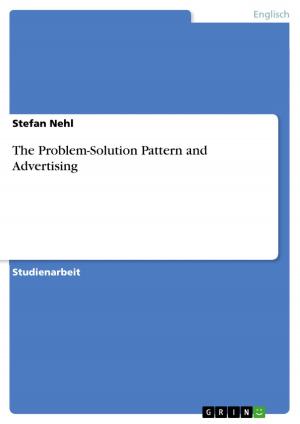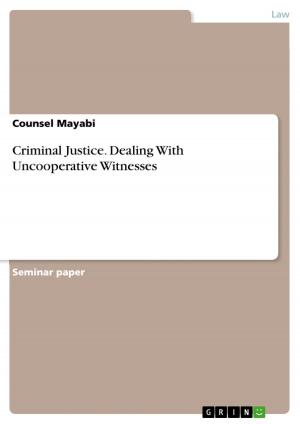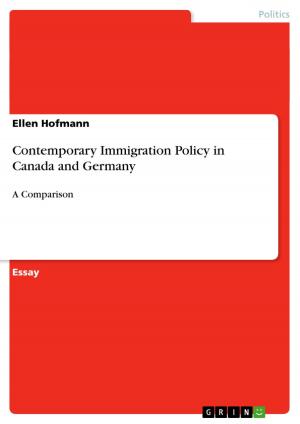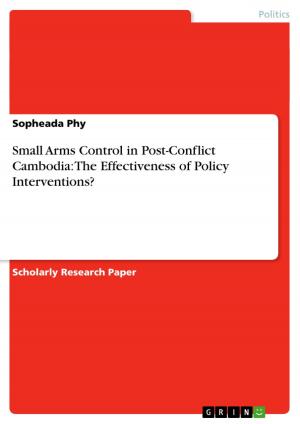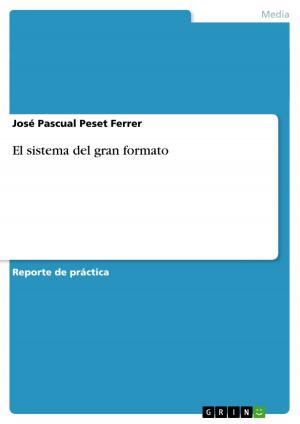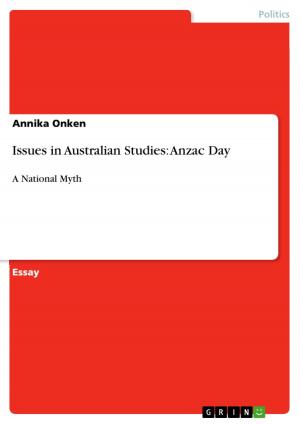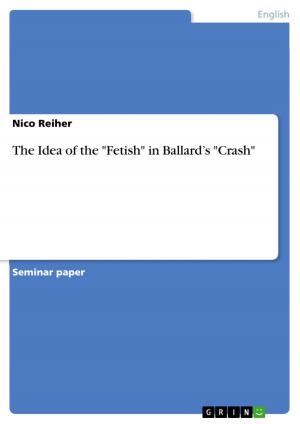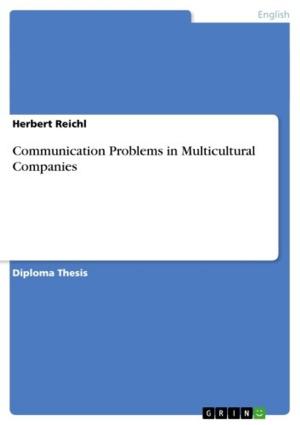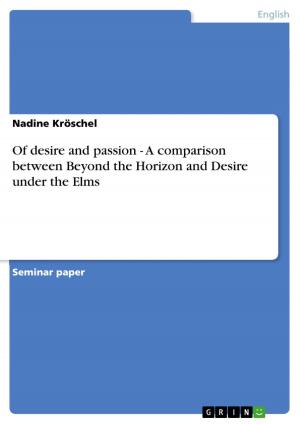Escaping Adulthood
How Holden Caulfield in J.D. Salinger's 'The Catcher in the Rye' flees into his imaginary world
Nonfiction, Entertainment, Drama, Anthologies| Author: | Daniela Will | ISBN: | 9783640647286 |
| Publisher: | GRIN Publishing | Publication: | June 22, 2010 |
| Imprint: | GRIN Publishing | Language: | English |
| Author: | Daniela Will |
| ISBN: | 9783640647286 |
| Publisher: | GRIN Publishing |
| Publication: | June 22, 2010 |
| Imprint: | GRIN Publishing |
| Language: | English |
Intermediate Examination Paper from the year 2010 in the subject American Studies - Literature, grade: 2,3, Johannes Gutenberg University Mainz (Department of English Linguistics), language: English, abstract: The Catcher in the Rye by J.D. Salinger has been put on school syllabus in hundreds of schools not only in America, but all over the world. The glorification of drinking, smoking, lying, promiscuity and immorality have not least been the reasons for this book heading the list of banned books in a number of American schools (Frangedis 72). Still adolescents all over the world could identify with the rebellious teenager Holden Caulfield, to the worries of their parents. Helen Frangedis tries to ease those worries, arguing that the teaching of morals is in fact her justification for introducing the book to her students, since Salinger's purpose was actually morally indeed (Frangedis 72). But how does Salinger point to what in his opinion is morally right? By presenting a protagonist that opposes all the wrong values. Hol-den Caulfield finds himself irrevocably growing towards a life that does not appeal to him at all: The life of an adult. With his sixteen years, he cannot imagine adapting to the society he sees everyday; a society characterized by phoniness, superficiality and wrong values. The on-ly solution he sees thus is to escape; to flee; into an imaginary world. The following paper is going to have a close look at three essential questions that have to be posed in this context: What is the initial situation that dissatisfies Holden so much, that he wants to flee, and where to? In which ways does he flee? And, most important, what is the deeper psychological reason for his flight? By answering these questions it will be proved that Holden Caulfield flees adulthood because of his neurotic association of maturation and death. Therefore, his real world, as well as the imaginary world he flees to, will be looked at, before analyzing his ways of fleeing and after all, taking a closer look at his neurosis.
Intermediate Examination Paper from the year 2010 in the subject American Studies - Literature, grade: 2,3, Johannes Gutenberg University Mainz (Department of English Linguistics), language: English, abstract: The Catcher in the Rye by J.D. Salinger has been put on school syllabus in hundreds of schools not only in America, but all over the world. The glorification of drinking, smoking, lying, promiscuity and immorality have not least been the reasons for this book heading the list of banned books in a number of American schools (Frangedis 72). Still adolescents all over the world could identify with the rebellious teenager Holden Caulfield, to the worries of their parents. Helen Frangedis tries to ease those worries, arguing that the teaching of morals is in fact her justification for introducing the book to her students, since Salinger's purpose was actually morally indeed (Frangedis 72). But how does Salinger point to what in his opinion is morally right? By presenting a protagonist that opposes all the wrong values. Hol-den Caulfield finds himself irrevocably growing towards a life that does not appeal to him at all: The life of an adult. With his sixteen years, he cannot imagine adapting to the society he sees everyday; a society characterized by phoniness, superficiality and wrong values. The on-ly solution he sees thus is to escape; to flee; into an imaginary world. The following paper is going to have a close look at three essential questions that have to be posed in this context: What is the initial situation that dissatisfies Holden so much, that he wants to flee, and where to? In which ways does he flee? And, most important, what is the deeper psychological reason for his flight? By answering these questions it will be proved that Holden Caulfield flees adulthood because of his neurotic association of maturation and death. Therefore, his real world, as well as the imaginary world he flees to, will be looked at, before analyzing his ways of fleeing and after all, taking a closer look at his neurosis.


